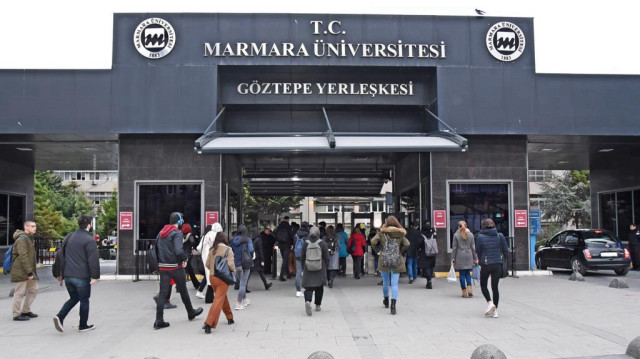
Over 2-day congress, 27 researchers from 10 universities present 25 papers
The 4th International Marmara Graduate Communication Students Congress, co-organized by Marmara University's Faculty of Communication and Anadolu, concluded Tuesday in Istanbul.
With the theme Searching for a Fair and Effective Communication Order: Resistance, Decolonization, and the Information Ecosystem, the two-day event brought together academics and doctoral researchers to examine global communication challenges from fresh perspectives.
The second day began with a session moderated by Busra Tosun Durmus, who referenced influential Western thinkers Alexis de Tocqueville and Francisco de Vitoria in framing the philosophical foundations of Western civilization.
In a presentation titled A Reconstructive Stance Against the Eurocentric Paradigm in Mental Health Studies: The Case of Malik Bedri, Marmara University doctoral student Esma Betul Acar called for more objective, consistent and universal approaches in the field of mental health.
Sirvan Once Colak, also a PhD student at Marmara, emphasized the need to re-examine the Western-centric concept of public space in the context of non-Western societies.
“When looking at the East-West distinction within the framework of the public space, we can differentiate it into 'Eastern publicness' and 'Western publicness.' The concept of the public space was actually introduced by examining Western societies, and it does not have an exact equivalent in the East,” she explained.
Colak said that Western publicness could be characterized as rational and critical, while Eastern publicness could be seen as aesthetic and emotional.
- ‘Disinformation and Solutions in the Information Ecosystem'
In the final day's second session, titled Digitization, Disinformation, and Data Colonialism, Zuhal Sonmezer, a doctoral student at Istinye University, addressed the growing threat of disinformation, and how it impacts society, politics and individuals.
Sonmezer explained how disinformation, which intensifies during crises, has advanced with digitalization and emphasized the need for strategic solutions to foster a healthier digital environment amid the evolving role of mass communication and emerging AI technologies.
The final session, Digital Communication, Manipulation, and Artificial Intelligence, was moderated by Marmara University research assistant Oguz Gulleb. Eylul Buse Bulbul of Istanbul Kent University discussed how Web 2.0 and social media have transformed users into both producers and consumers of content.
Former President of Türkiye's Council of Higher Education (YOK) Gokhan Cetinsaya delivered the closing speech, Reconsidering the History of Türkiye and the Middle East.
He discussed how nation-states construct official narratives and how Türkiye continues to grapple with fully interpreting its past. He cited key turning points such as post-1960s historical revisionism, the communication boom of the 1990s and the impact of social media in creating alternative histories.
Over the two-day congress, 27 researchers from 10 universities presented 25 papers.
Students also learned about Anadolu's internship program and explored its published works at the Anadolu stand.
Hello, the comments you share on our site are a valuable resource for other users. Please respect other users and different opinions. Do not use rude, offensive, derogatory, or discriminatory language.
The floor is all yours.








